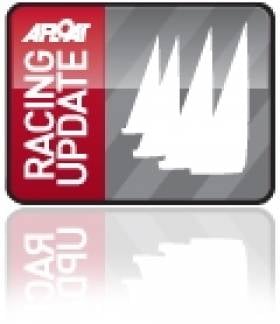Displaying items by tag: Jochem Visser
#spiouest – Dun Laoghaire's Kenny Rumball finished sixth overall at Spi Ouest regatta in western France yesterday. Rumball, who runs the Irish National Sailing School, was racing the Class 7.50 yacht, Cool Runnings with international yachtsman, Jochem Visser onboard. The crew suffered in the 12-boat fleet because they counted both an OCS and a DSQ in the 12–race series. Results here.
The Spi Ouest-France Intermarché, which ended in La Trinité-sur-Mer in 'perfect weather conditions' was the 37th edition of the regatta.
In 2016, Spi Ouest takes place from March 24 to 28.
























































